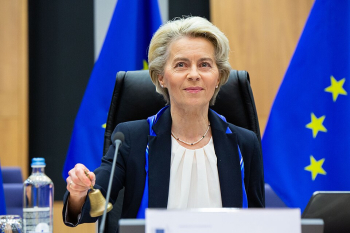
On November 7, 2023, the European Union (EU) took a significant step towards implementing tighter regulations governing online political advertising. Negotiators representing
the European Parliament and member states reached a consensus late on Monday, resulting in a comprehensive law designed to safeguard individuals' personal data from being employed for unsolicited targeting with political advertisements.
The primary aim of this new regulation is to combat the practice of microtargeting, where advertisers customize their messages to specific audiences by analyzing their online behavior and the personal information shared on social media and other online platforms.
A key aspect of the agreement is the requirement for political advertisers to obtain explicit consent from citizens before utilizing their personal data. Furthermore, the use of sensitive information, including details such as sexual orientation, skin color, or religious beliefs, will be prohibited. Additionally, targeting political advertisements at minors will no longer be allowed.
One of the notable provisions of this regulation is the emphasis on transparency in online political advertising. Political advertisements will now be mandated to carry clear labels, providing information about the advertiser, the amount spent, and the specific election or referendum context. To ensure transparency, a publicly accessible database will be established to collect information on all political ads.
Flemish MEP Tom Vandenkendelaere of CD&V commented on the significance of this agreement, stating, "With this agreement, we are putting an end to the era in which social media collect huge amounts of data from voters unsolicited, and often unknowingly, in order to influence their voting behavior, or worse, to pit groups of people against each other, as Cambridge Analytica did." This reference harks back to the controversial role played by the data company in the 2016 US presidential election and the Brexit campaign.
Furthermore, the EU's move is aimed at strengthening the protection of its democratic processes against foreign interference or manipulation. As part of this effort, advertisements sponsored by third countries will be banned during the three months leading up to elections or referendums.
While the agreement awaits formal ratification by member states and the Parliament, it is worth noting that most of the rules will only come into force after an 18-month transitional phase. However, certain fundamental principles may be implemented before the June 2024 European elections, such as through the application of the code of conduct on disinformation.

















